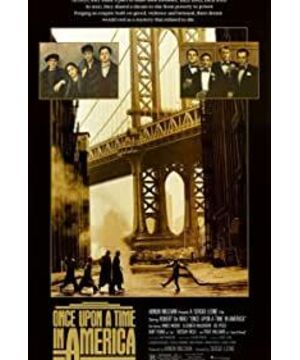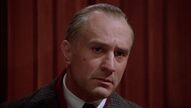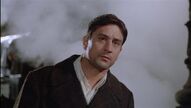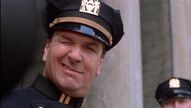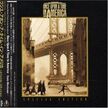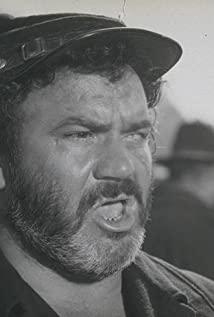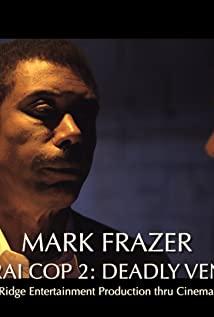After Song Jiang was recruited, the emperor was afraid of his rebellion and gave him poisonous wine. He drank alcohol, worrying that the upright Li Kui would rebel for this in the future, so he sent someone from Runzhou to call him over and gave him the poisoned liquor to drink, and then told him, and he met with him after death. . Li Kui said, "Serving my elder brother during his lifetime, but after his death he is just a kid under his elder brother." Although the roundabout Song Jiang is really off the appetite, I like this kind of life-long relationship and the life-long world. So I also like watching movies like "Once Upon a Time in America." The storyline is like this. Five gangsters including Max, Noodles, and Dominic formed gangster brothers on the streets of New York. They used the method Noodles came up with to take risks: use salt to help smuggling boats avoid anti-smuggling police and extract profits. In Max Under the suggestion, they kept half of each harvest to use as a public fund, and the keys were handed over to another friend, Moe, to keep the keys. Dominic, the youngest in the gang fire, was shot and died. Noodles rose to kill his opponent Bager and went to jail. Years later, it was 1933 when the prohibition was lifted, and the smugglers were facing an unemployment crisis. Max wanted to join the trade union that had hired them to kill chickens, and Noodles had no trust in politicians. Max planned to rob the Federal Reserve, and Noodles called the police to save his brother's self-defeating behavior. And when Noodles saw the newspaper in the "Chinese Theater" that the other three were killed by the police on the street that night, they rushed over to see that the body belonging to Max was charred and unrecognizable. Before leaving New York, he went to collect the huge sum of money shared by the five people and found that there was only one empty box left. With a heavy sense of guilt, he left incognito, and came back 35 years later to discover another truth. There are also interspersed love stories between Noodles and the Jewish girl, Moe's sister, and Deborah. There is nothing new under the sun. The clever key of a good movie lies in the way of telling stories. The yellowish color of the film seems to be covered with a layer of mist, making each lens look like an old yellow photo; the tall and long panpipes make people hesitate. The music and the plot are in harmony and complement each other, and several transitions are completely natural. For the four-hour movie, the plot became clear when I saw it for the second time. If I watched it several times, I found that almost every shot has instructions and is indispensable. The people behind the camera use Noodles to vent the notion that nothing is emptiness, everything is emptiness. The gangster Noodles has been a cynical person since he was a child. He does not go to church on Passover, does not observe the precepts, and has a drink. To be precise, he is a person who has no religious beliefs. In his life, his beliefs are two: love for Deborah, and loyalty that must be observed between members of the gang. Regarding the two major meanings of Noodles' life, there is a scene in the movie that suggests, ah, no, it should be "explicit". In him Now that the brothers bleed on the streets, and the shared money was missing, he was going to go far away and bought a one-way ticket to buffalo at the station. He looked back and saw a huge poster, Visit Coney Island (Visiting Coney Island). Coney Island)-Coney Island is located in Brooklyn, New York, USA. In the early 20th century, it was a well-known amusement park in the United States. Passing through the poster, there is another huge "set" on the reverse, a huge red apple with LOVE written on top-of course, when he walked through the poster, the movie had been inserted from 1933 to 35 years later. The positive and negative paintings hint at the two pivots of the meaning of Noodles' life. These two fulcrums were realized by the two most important people in his life, Deborah and Max, and the ending of destroying these two fulcrums paved the way when the story just unfolded. In one scene, when the little gangster Noodles began to be young, he pulled out a dusty book from the cobweb-covered window sill in the toilet and sat on the toilet bowl and turned it over. The movie gave two close-ups, that book. It is the novel "Martin Eden" by Jack London. What kind of book is that? Jack London is a writer from a worker background. This is his autobiographical novel. The protagonist living at the bottom of society has no status, wealth, or love. After a long effort, he finally became famous in one fell swoop. The protagonist who stepped into the upper class gained fame, wealth and status, and love was lost and regained. But all this has plunged him into nothingness-a world where social Darwinism and superhuman philosophy prevail-this is also the world that the little gangster Noodles faces. The two closest people to him are not the same as him. They are not content with the status quo. To work hard to surpass themselves, this is doomed to one day they must part ways. See how he moves toward nothingness step by step. In childhood, Passover, when everyone went to church, it was originally the best time to rob the house and accumulate wealth, but Noodles used it to get close to Deborah, the lover of his dreams. After 35 years of traveling abroad, he returned to Fat Moe’s room. He walked to the hole in the wall where he used to peek at Deborah. With his old eyes and dim eyes, he seemed to see the young Deborah dancing gracefully, posing and whirling, remembering her white veil. She was pure and ethereal like an angel, and the flour room turned into a fairyland. She once read to him: My beloved is white and ruddy His skin is as the most fine gold His cheeks are as a bed of spices …… His eyes are as the eyes of doves His body is as bright ivory His legs are as pillars of marble One verse, from which she has a religious color in his heart. However, she said "he is altogether lovable, but he'll always be a two-bit punk, so he'll never be my beloved". Angel Deborah's face was as clean and delicate as porcelain. Beauty is beautiful. A soulless woman is a daughter of a family. Deborah was born in a small Jewish restaurant. The indifference and pride hidden in her eyes at a young age gave her a beautiful face and a deep sense of soul. During his long prison life, Deborah was her belief. He also read the Bible well, using another verse in the Song of Songs to praise his goddess: How beautiful are your feet in sandals, O, prince's daughter Your navel is a bowl well-rounded with no lack of wine Your belly, a heap of wheat surrounded with lilies Your breasts, clusters of grapes Your breath, sweet-scented as apples Give it to her; she, according to her dream, must go all the way to the top, and everything else must give way. Even to Noodles, she only said that you are the only person that I have ever...... that I've cared about.. She doesn't love him? It is true that she loves him, but her love has a more "noble" and more specific form. She wants to transcend the life of the lower class in Brooklyn and go to Hollywood! Go to Hollywood! There are no Noodles in her plan, she just came to say goodbye to him. This ruthlessly bombarded Noodles' belief in love that is comparable to religion, destroying one of the two poles in the meaning of his life. This is why he suddenly changed his tenderness and raped Deborah. It was because he used this to vent the failure and despair of a man. Misfortune never comes singly. When he returned to his normal life, his close comrade Max sat on a 17th-century papal throne that he bought for $800, showing his ambition for power. The abolition of Prohibition in 1933 made them lose the opportunity to make a fortune by selling smuggled alcohol. Max desperately needs to use the money earned from the underworld to go to the upper class to buy a site under the sun. On the surface, he arbitrarily planned to rob the bank, so that Noodles, who did not want to watch the gang brothers go to death, called the police station to inform the police, and secretly joined forces with the police black and white to perform a bloody street tragedy. After 35 years, Noodles was carrying The moral guilt of betraying his brothers is hidden away. It was only 35 years later that the truth was discovered that Max borrowed the charred corpse to get rid of the cicada and turned into secretary Bailey. Bit high weight. At this time, I am caught in a union scandal and will fall in the foreseeable future. The so-called exhaustion of organs actually missed Qing Qing's life. He knew that he was in danger, so he retrieved the Noodles, told him the truth, and gave him the opportunity to kill himself, so as to reduce the guilt deep in his heart. Noodles did not follow Deborah's warning and decided to go to the appointment with an invitation. They met the two most important people, Deborah and Max, under the same roof. His ultimate faith, love and loyalty, all collapsed. No, it was destroyed in 1933 to be precise. Only the truth was buried until 35 years later. Everything is like a dream bubble-the Noodles that have fallen into nothingness can only be on the smoking couch of the "Chinese Theater". Under the influence of opium, they can see the illusion of the past, and a satisfied smile blooms on their face-so the director fixed this His smile was placed on the face of Noodles who was in the prime of life in 1933. After reading it, think about it. Is this a story about several gang members in the lower class of New York? Why is it called "Once Upon a Time in America"? Think of Dreiser's novel "American Tragedy." A small person who dreams of getting ahead is finally involved in politics. The dream is not realized. Instead, the tragedy of losing his life rises to an American tragedy. The legendary United States is a classless society. The American dream is that small people can get ahead from scratch through self-struggle. This tragedy broke this lie. The implication of this movie is the same. Little bastards, whether you see through it early in the morning and be cynical like Noodles, or whether you are deliberately hoping for a crown, like Max, the ending is the same, the central word is one: nothingness. So it's called "Once Upon a Time in America." (For a good movie, you can’t finish how you say it. It’s like a ridge and a peak on the side. If you watch it a few more times, you can see the excitement from all angles. For example, the perfect combination of music and scenes, Noodles platform in 1933 After buying the ticket for leaving home, stop for a while before the poster, and sing the word "yesterday~~~" like weeping-with the music of the Beatles "Yesterday", the scene is pulled to 1967, elderly Noodles Back here again. Many symbols and metaphors in the movie make this movie rich in meaning and memorable: love represents religion; the pope’s throne: power; the endless ringing telephone ring: Noodles’ inner guilt Deborah played by Cleopatra Leo Petra: She transcended ordinary ambitions; The thick oil paint and makeup removal process on Deborah's face could not be wiped off, suggesting that she would never go back again; Max, that is, Secretary Bailey, finally walked to the garbage truck Disappeared behind, Noodles saw the garbage truck driving by, and something was being shredded in it, which meant that he was swept into the garbage of history, and finally the dust returned to dust, the dirt returned to the earth...)
View more about Once Upon a Time in America reviews


